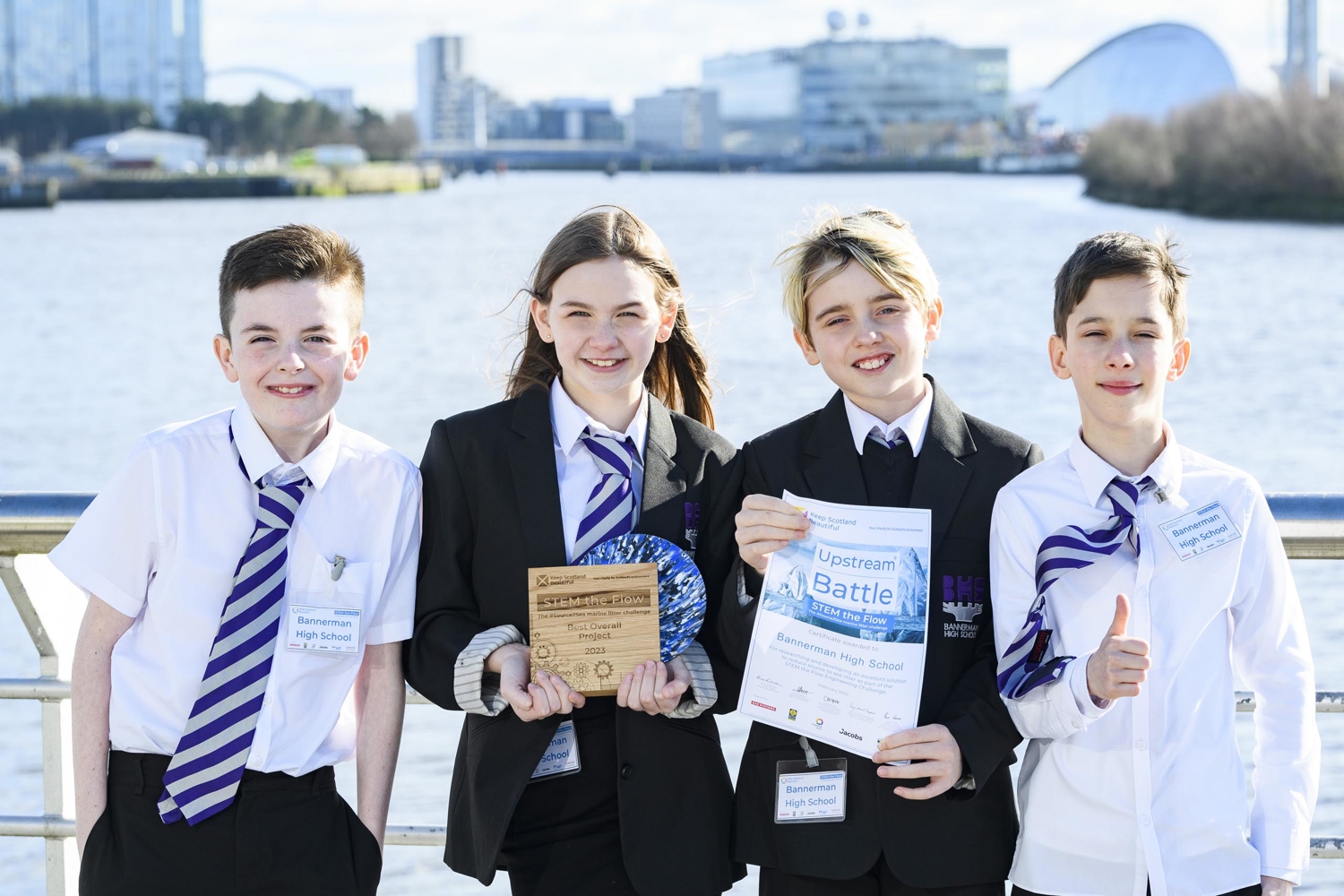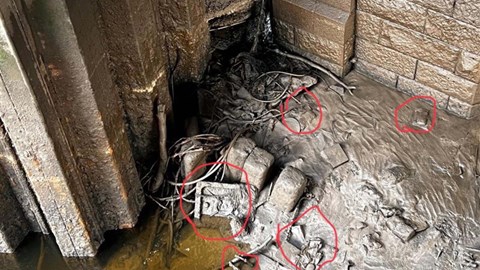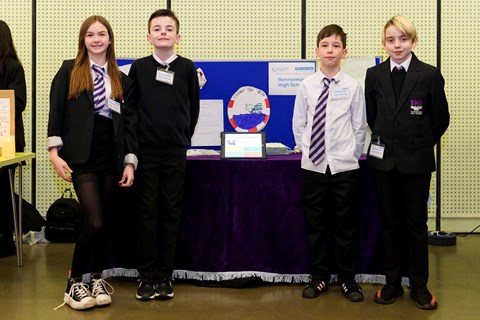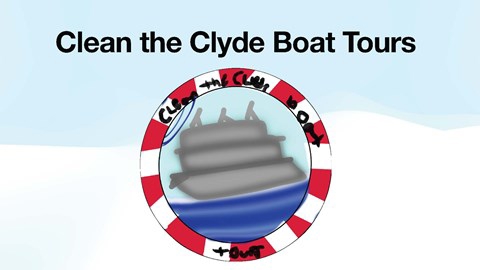Bannerman High School
Winner: Best Overall Project 2023

The 'Clean The Clyde Boat Tours Team' travelled by train from Garrowhill to the banks of the River Clyde to observe the scale of the problem and were dismayed to find a lot of litter.
The pupils are passionate about the environment of the river Clyde and were very keen to invent a way to help tackle the issue of litter. One of the group members enjoys fishing so understands the problem that litter is causing in the Clyde.
They decided to add to their research by interviewing members of the public to see what they thought of the problem and carried out carried out questionnaires speaking to 23 people in total around the River Clyde.
Each pupil took a clipboard and 5 questionnaires, with the aim of speaking to 20 people in total. They approached random members of the public and asked their thoughts.
86% of 23 respondents said that the litter problem in Glasgow was “terrible”, and 40% of 23 respondents said that the litter problem in and around the River Clyde was “terrible”, with 52% saying it “wasn’t bad”.
In doing their questionnaires, the group met a local called Collin Cameron. Collin bumped into the group on their way down to the River Clyde and was curious about what they were up to. Pupils listened to Colin tell his story about his experience with the River Clyde and thought it was important to include it in their report.

"Collin told us about how he has spent his entire life in or around the River Clyde. He was born in Govan in the 1950s, only a short walk away from the river. He spent his career working in the shipyards close to his home in Govan.
He explained to us that he has seen drastic changes to the River Clyde over the last 70 years. Collin actually says that the river is much cleaner than it used to be in some ways, because it used to be polluted with toxic chemicals and heavy metals from the shipyards and other industries. He now thinks that the River Clyde in Glasgow is polluted with plastics and other materials, mainly from further upstream.
He thinks that the council need to employ more people to clean up the city centre, and that adults need educated on how to use bins."
The group had many ideas to fix the litter problem, including two barriers that would stretch across the Clyde, like what you would find in a pinball machine, to collect litter. But then reconsidered as they might require a lot of maintenance.
Another idea was a small submarine like vehicle that could help to gather litter, however the group again reconsidered as they thought that this would not do well in choppy waters. After many meetings they came up with an idea to not only help the litter problem in the River Clyde but also raise a lot of money to help boost the city’s economy!
Pupils thought that the city of Glasgow is lacking a tourist boat in the city centre like many other cities close to rivers have like London and Paris and came up with Clean The Clyde Boat Tours.
Their design proposal was a small fleet of boats that are capable of carrying tourists, but that also clean up the River Clyde.
The team proposed the boats could dock on Clyde Street underneath the railway bridge into Central Station and planned to name their four boats after prominent environmental activists Greta Thunberg, David Attenborough and Leonardo DiCaprio and inventor Nikola Tesla.

The first boat, named after David Attenborough, uses a special conveyor belt to get the rubbish out of the Clyde while causing no damage. It also is capable of taking people on a tour for fund raising for conserving the Clyde. Like the rest of the boats it’s made from recycled, sturdy plastics. David is the largest boat of the fleet, capable of carrying 200 passengers.
The smallest boat, named after Nikola Tesla is very different from the other boats because it lacks a conveyer belt system, but instead it acts as a moving bin by the public using buttons on the banks of the Clyde, it goes to them and people put their rubbish in a tube that goes into the boat like an animal feeding shoot.
The third boat, named after Greta Thunberg is smaller than David and doesn't carry passengers, but instead has a magnet and sonar system and has the pulley system to collect heavy objects on the riverbed.
The last boat Leo named after Leonardo DiCaprio is smaller than Greta so also doesn't carry passengers but is one of the faster ones for quick clean ups.

The group found it difficult to cost their fleet of boats, but their mentor advised that this is done by putting a bid out to tender for
companies to make an offer.
Clean The Clyde Boat Tours would have educational boards around the Clyde at the dock. The boat would go a set route, and there would be a tour guide. The non-passenger boats could go to where there was a litter problem that day.
Charging tourists would help to pay for the project which pupils think would be very busy during the summer months. The group proposed charging people less during the winter to encourage people to use it.

